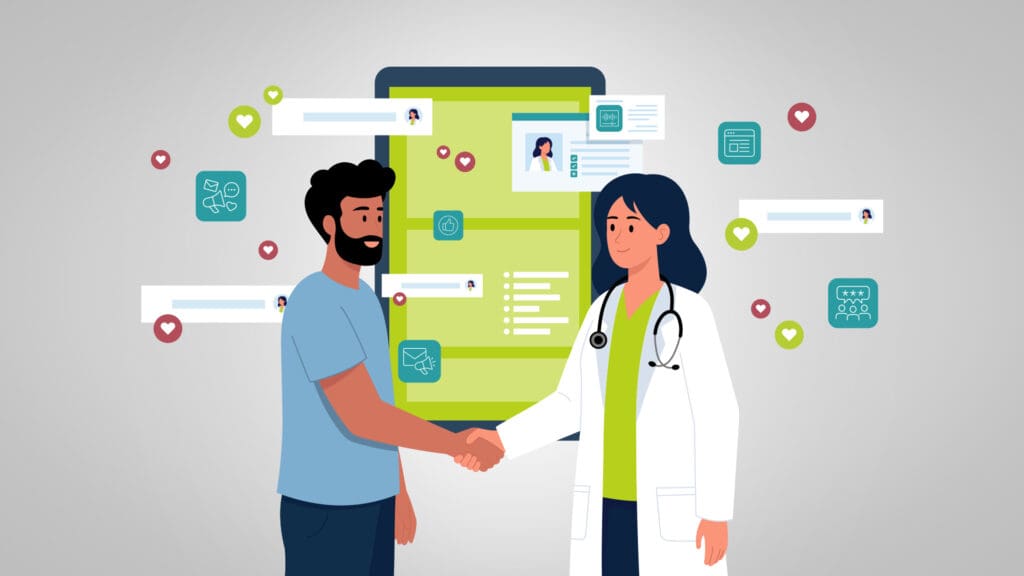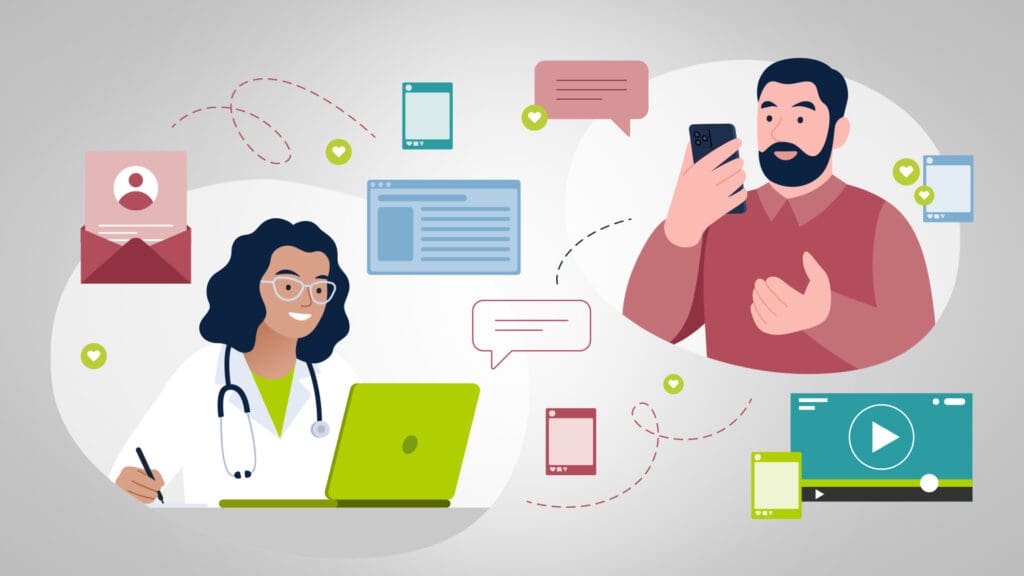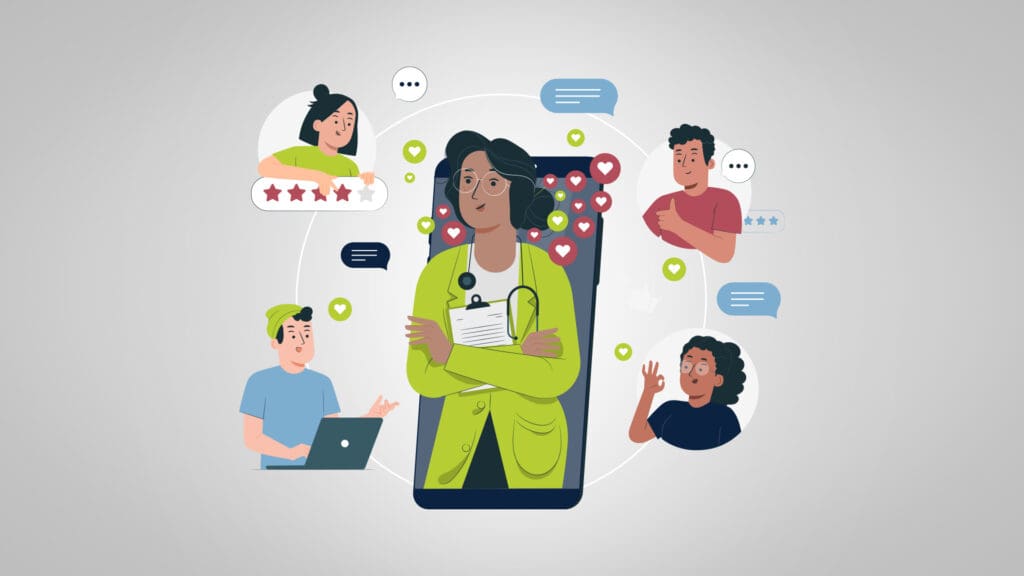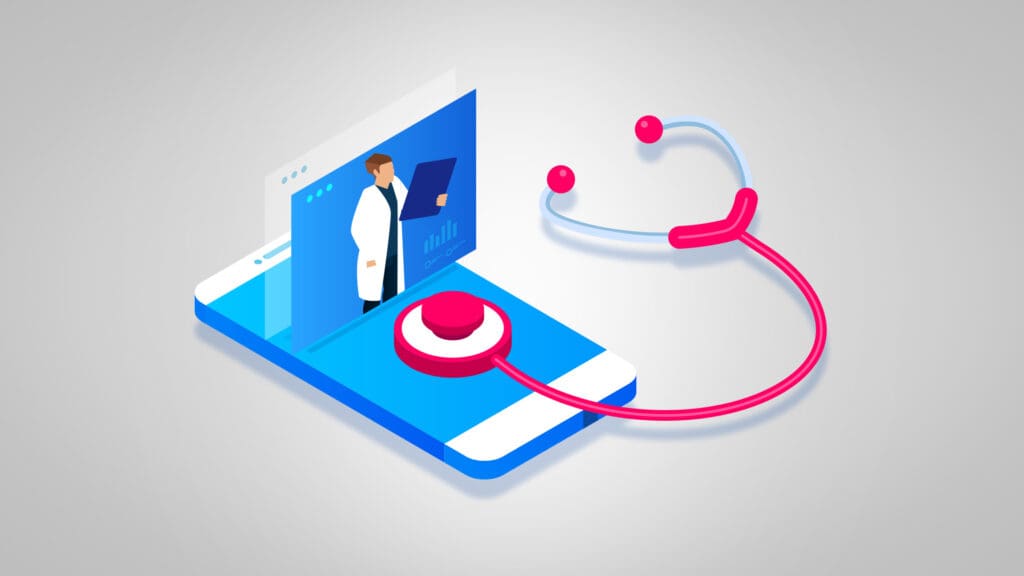
3 Ways to Generate Healthcare Content Without Disrupting Care
You know that a healthy flow of great content is an essential way to inform and stay in touch with existing healthcare patients, and it’s also a way to help bring in new ones. However, you also know that the best content often comes from our healthcare professionals, physicians and experts who have never been more time starved. So how do you get the healthcare content you need while making sure you don’t risk interrupting care?
In today’s Plain Talk article, we’ll provide you with some tools to help strike the right balance and explain why now is the time to improve your offering.
- Increasing Interest in Healthcare
- 1. Step Up Social Media
- 2. Keep It Conversational
- 3. Utilize Video and Virtual Platforms
- Get Expert Help With Healthcare Content
Increasing Interest in Healthcare
Healthcare is a rare industry that affects everyone, so providing this engaging content for current and potential patients is extremely important. The COVID-19 pandemic has resulted in many community members becoming more engaged than ever with the healthcare sector. According to Deloitte’s 2021 Global Health Care Outlook, consumers are accelerating the pace of change in healthcare, and driving demand and development for new ways to interact with their physician, as well as innovation in health-related products and services. Patients are using virtual visits more than ever before, and according to Deloitte, 80% of consumers say they are likely to have another virtual visit after the pandemic is over.
It’s clear that the pandemic has had a lasting impact on healthcare, and with this ongoing and increasing interest, it’s important to amplify physicians and medical professionals as experts for healthcare organizations, and especially now, to speak about this ever-changing field and the impact on communities. So, how can we do this in an effective and efficient way?
1. Step Up Social Media
Public relations professionals often offer up physicians and medical experts to media outlets, as a way to present medical information to the community through a news story. These earned media opportunities may not happen every day or week, but healthcare providers still have a space to do this on an ongoing basis – social media. The social media space is a huge area for delivering this type of engaging content, and during the pandemic especially, has been more important to the healthcare industry than ever before. People have relied on this content to help them better understand the pandemic, and to feel a connection to their medical providers at a time when connection was key.
Reach the general public
Social media also allows these busy physicians to bring their medical practice into a person’s home, with live chats or previously taped videos regarding healthcare news that may be of interest to the general public—whether it be evergreen conditions that community members may be experiencing or community healthcare concerns. Many healthcare providers and systems have now embraced social media, and the many possibilities it continues to offer in helping medical experts reach the general public.
In my own experience, I have even been in the operating room with physicians as they have performed weight loss surgery on a patient, while also walking viewers at home who may be curious about the surgery through the process. With the patient’s consent, we were able to help the physicians show engaging content in a way that wasn’t interrupting care in the room and gave those at home a true sense of what the surgery entailed. The result? Additional calls to the physician’s office to set up consultations for this type of surgery. The physicians saw interest from their patients, performed outreach on social media, and then saw the results they were looking for. It was a way to market the physicians to the community, without a marketing cost.
2. Keep It Conversational
How else can you leverage physicians for engaging content without interrupting care? Expert articles or op-eds are a great place to start, which allow for medical professionals to address healthcare topics of interest in an engaging way that will reach the local community. Even with limited time, medical experts will often share the information they would like covered and how to best cover these topics with their internal marketing team, which assists them in crafting their words into an article or op-ed. This is something that can be very educational to the general public, as long as it is kept as conversational as possible, which is crucial in the healthcare field.
Avoid jargon
For medical professionals, healthcare lingo or terminology can sometimes be hard for the average person to understand, so it’s up to the marketing team to help get the main message across for the medical experts in an engaging way where the community will understand. This information can then be repurposed for internal newsletters, healthcare blogs, or additional internal or external assets like charts or infographics. The key is creating healthcare content in a format that the average person can understand, and in a variety of ways so that you aren’t interrupting care.
3. Utilize Video and Virtual Platforms
When it comes to earned media opportunities, the pandemic will likely have a long-term impact on how medical professionals participate in these requested interviews. In the past, TV outlets preferred to do these one-on-one interviews with medical experts in person. For a physician who has a busy schedule, finding time for these interviews was sometimes a challenge.
As a result of this pandemic, many have found online tools like Zoom or Teams allow them to continue doing these same types of media interviews, but in a way that lets them to get back to their patients as quickly as possible. No longer are they having to block off an entire hour to meet with a reporter and take part in a sit-down interview. Now, between patients, they are able to quickly jump on a call and knock out a media interview even quicker than before.
This is also a great opportunity for marketing and PR teams who struggled with being able to regularly meet with healthcare experts to secure the information they needed to create content. Thanks to virtual meeting spaces, they now have a quicker and more efficient way to meet with these team members regularly and to quickly produce content without interrupting care. This new willingness to use improved telecommunication services has likely forever changed the way we generate healthcare content.
Get Expert Help With Healthcare Content
If you need more details on how to improve your healthcare content process, we’d love to talk. Give us a call at 502-499-4209 or contact us here.
Our Articles Delivered
Signup to receive our latest articles right in your inbox.







